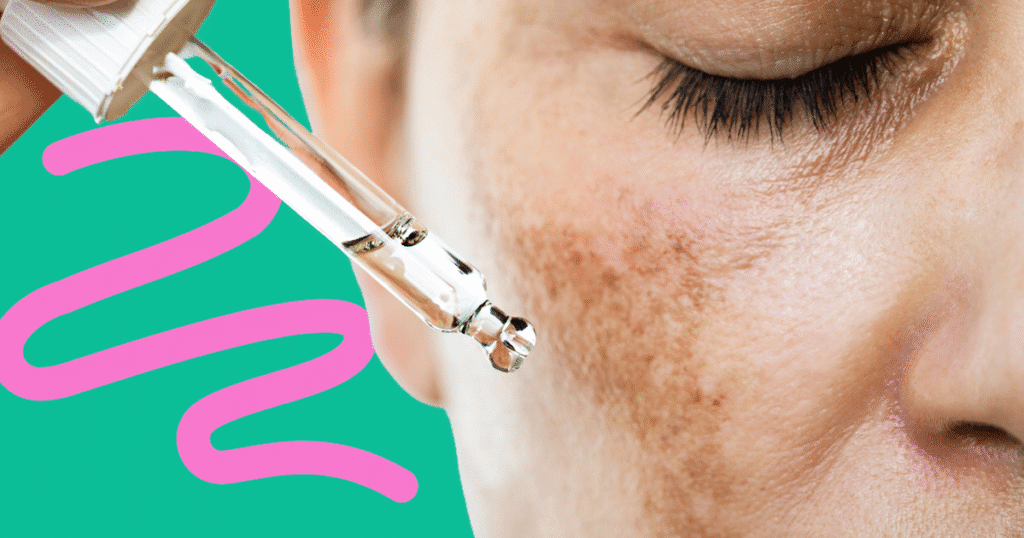Understanding Skin Discoloration: Causes, Prevention, and Treatment
The human body, with an impressive average of 22 square feet of skin, exhibits a range of colors, tones, and textures. While some variations are normal, issues like dark spots and skin discoloration can be bothersome. Let’s explore why these differences occur and what you can do about them.
Why Is My Skin Not Uniform?
The Role of Melanin in Skin Color
Skin pigmentation largely depends on melanin, a natural pigment produced by cells known as melanocytes. Dermatologists have identified several factors influencing skin color:
- Sun Exposure: Individuals living in sunny regions may experience more significant changes, such as darkening or freckling, especially if they have lighter skin types.
- Hormonal Changes: Fluctuations in hormones can also stimulate melanocyte activity, resulting in uneven skin tones.
Understanding Hyperpigmentation
Certain skin types are more prone to hyperpigmentation, an issue often seen in individuals with darker skin tones. Dermatology experts link this phenomenon to various factors, including:
- Sunlight: Chronic exposure can cause the skin’s pigment-producing cells to overreact, leading to dark spots.
- Inflammation: Triggers like acne and hormonal shifts can disrupt the skin’s balance, exacerbating pigmentation issues.
Are Those Sun Spots?
One of the main contributors to dark spots is unprotected sun exposure. Here’s how it works:
- UV Radiation Impact: UV rays stimulate melanin production significantly, contributing to dark spots.
- Prevention: Employ daily sun protection. Use a broad-spectrum sunscreen with an SPF of 39 or higher, along with UV protective clothing, sunglasses, and hats.
Indoor Sun Exposure Matters Too
Interestingly, even indoor lighting can contribute to pigmentation changes. Dermatologists emphasize:
- Daily Sunscreen Use: This is crucial even on cloudy days, as UV rays permeate through windows and vehicles.
More Than Just the Sun
Everyday Factors Contributing to Dark Spots
Apart from sun exposure, other everyday elements can wreak havoc on your skin:
- Pollution and Blue Light: External pollutants and screens can break down collagen and contribute to skin damage, leading to hyperpigmentation.
- Heat and Hormones: Inflammation from heat or hormonal shifts can also provoke pigmentation issues.
Be Gentle: The Right Exfoliation Approach
Many people mistakenly believe that aggressive scrubbing can eliminate dark spots. However, dermatologists advise against this approach:
- Gentle Techniques: Opt for a gentle skincare routine to maintain your skin’s moisture barrier.
- Avoid Physical Exfoliation: Techniques like using sugar or salt scrubs can irritate the skin and worsen pigmentation. Instead, consider mild chemical exfoliants containing alpha-hydroxy acids (AHAs) or beta-hydroxy acids (BHAs).
Professional Solutions
For tougher cases of hyperpigmentation, microdermabrasion or professional treatments may help. Consult a dermatologist for tailored advice.
Key Ingredients for Fading Pigment
When looking for skincare products, some ingredients are notable for their effectiveness in combating dark spots:
- Vitamin C: Known for its brightening properties.
- Azelaic & Kojic Acid: Both help reduce pigmentation and even out skin tone.
- Niacinamide: Regulates melanin production, improving overall skin appearance.
Recommended Treatments
If you’re searching for effective products, consider these options:
- Sesderma Azelac Ru Serum: Aids in reducing dark spots.
- Environ C-Quence Serum 4: Contains vitamin C for fading pigmentation.
- Obagi Professional-C Serum: High-quality vitamin C serum.
- La Roche-Posay Niacinamide 10 Serum: Supports melanin regulation.
Safe Introduction of New Products
For those experimenting with potent ingredients like hydroquinone (a prescription-strength skin-lightening agent):
- Always consult a dermatologist.
- Start with small amounts to gauge skin reaction.
Conclusion: Your Path to Even Skin Tone
Achieving an even skin tone is a journey that combines preventive measures, careful product selection, and, if necessary, professional guidance. For optimal results, remain diligent about sun protection and explore the myriad of products with proven efficacy against dark spots. With the right approach, clearer, healthier skin is within reach.
For more detailed information on skincare and pigmentation treatments, visit Dermatology Times and American Academy of Dermatology.


